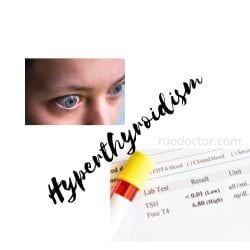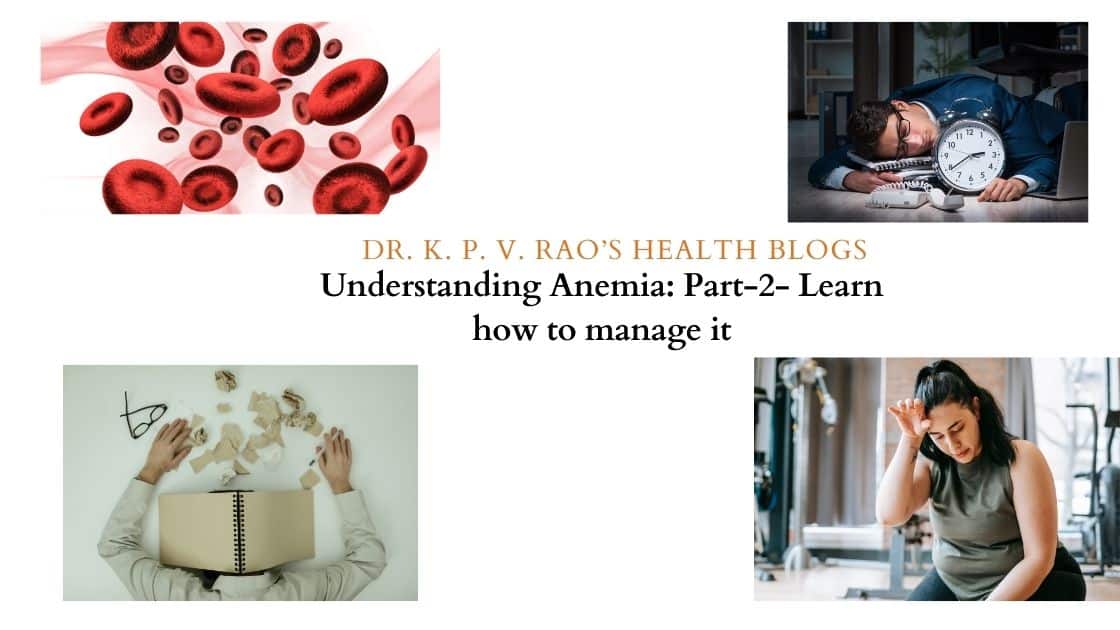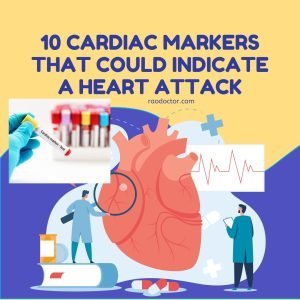Table of Contents
Introduction

Image source-FreePik
What is hyperthyroidism? What are the symptoms and side effects of hyperthyroidism? If you have been diagnosed with this condition, what can you do to manage it effectively? Is there a way to prevent or recover from hyperthyroidism naturally? Keep reading for answers to these questions and more. Let’s face it—knowing about your medical conditions can be pretty scary!
Especially when you first find out about them and don’t know exactly what that means for your future. Luckily, we live in an age where information is accessible with just a few clicks on our phones or computers. This post will answer all of your burning questions about this condition so you can take action and put your worries at ease…
What is Hyperthyroidism?
Hyperthyroidism is a condition where there is an excess production of thyroid hormones by the thyroid gland. The thyroid gland is a butterfly-shaped gland located in the front of the neck. It consists of two lobes that produce thyroid hormones that regulate many different functions in the body including metabolism, heart rate, body temperature, and more.
In my last article, I discussed all about Hypothyroidism. If you have not read it, you can do so here-
The two main thyroid hormones are triiodothyronine (T3) and thyroxine (T4). In healthy people, around 80% of the thyroid hormone circulating in the blood is T4. The remaining 20% is T3, which is considered the active form of the hormone. The pituitary gland regulates the amount of T3 and T4 being produced by the thyroid gland. If a person has hyperthyroidism, their thyroid gland will produce too much T4 and T3.
5 Signs and Symptoms of Hyperthyroidism-how to diagnose and manage it Share on XWhat are the signs and symptoms of Hyperthyroidism?
The most common symptoms of hyperthyroidism include
- an increased heart rate,
- raised blood pressure or Hypertension,
- feeling of being too warm,
- weight loss,
- insomnia,
- anxiety,
- feeling restless or irritable,
- feeling shaky,
- difficulty concentrating,
- and an increase in sweating.
Other symptoms that may also occur in people with hyperthyroidism are
- an enlargement of the thyroid gland,
- dry and brittle hair and nails,
- muscle weakness,
- and other digestive issues like indigestion, diarrhea, and abdominal pain.
WHAT ARE THE INVESTIGATIONS IN HYPERTHYROIDISM?
To diagnose hyperthyroidism, it is necessary to carry out these investigations-
- Thyroid blood tests – These blood tests are used to diagnose hyperthyroidism by measuring levels of T3 and T4 in the blood. If they are found to be above the normal range, this indicates that the person has hyperthyroidism. An abnormal thyroid stimulating hormone (TSH) blood test result may indicate hyperthyroidism or that someone is taking too much thyroid medication.
- T3 and T4 Uptake – This test is done to see how well your body is converting and using the thyroid hormones.
- If the results show low conversion, it could be a sign of an autoimmune disease like Hashimoto’s thyroiditis. –
- Thyroglobulin Antibody and Thyroid Peroxidase Antibody – These blood tests can help detect autoimmune conditions that can lead to hyperthyroidism like Hashimoto’s thyroiditis. –
- Radioiodine Uptake Screening for Hyperthyroidism – In some cases, low thyroid hormone levels can lead to high levels of thyroid hormone. In such cases, a hyperthyroidism diagnosis may not be possible with standard thyroid blood tests. In such cases, a radioiodine uptake scan of the whole thyroid may be done to see if hyperthyroidism is present, especially for Graves’ disease.
For a detailed interpretation of these tests, Click here.
What is Graves’ disease?
In Graves’ disease, antibodies produced by the immune system attack and alter the thyroid gland function, causing it to produce too much of these hormones. As a result, patients may experience symptoms like
- weight loss,
- diarrhea,
- rapid heartbeat, also known as tachycardia
- anxiety,
- irritability,
- muscle weakness
- In most cases, the eyes protrude or bulge out giving a look as if the person is staring continuously [as shown in the picture below].

This is called exophthalmos.
Autoimmune disease occurs when the immune system mistakenly attacks healthy cells or tissues in the body. In Graves’ disease, antibodies known as TSH receptor antibodies bind to receptors on cells in the thyroid gland and cause them to release excessive amounts of thyroid hormone. This disorder occurs most often between ages 20 and 40 years old but can occur at any age. Women are 10 times more likely than men to develop Graves’ disease.
The prognosis of Graves’ disease is excellent when the disorder is diagnosed and treated early. However, if left untreated, Graves’ disease can cause complications such as heart problems and eye damage.
After Effects of having Hyperthyroidism
The most common effects of hyperthyroidism include –
- an increased heart rate,
- feeling of being too warm,
- weight loss,
- insomnia,
- anxiety,
- feeling restless or irritable,
- feeling shaky,
- palpitations- feeling of heart pounding against the chest wall
- difficulty concentrating,
- and an increase in sweating
- bulging of eyes as seen in Graves’ disease.
Other side effects that may also occur in people with hyperthyroidism are an enlargement of the thyroid gland, dry and brittle hair and nails, muscle weakness, and other digestive issues like indigestion, diarrhea, and abdominal pain.
Is there a way to recover from Hyperthyroidism?
If you have hyperthyroidism, you may be wondering if you can recover from it. The good news is that you can recover with the right treatment plan.
The key is to reduce the amount of thyroid hormone that is being produced so your body can start producing enough of its own. To do this, you will need to take enough medication [detailed description given below] to bring down your thyroid hormone levels to normal.
You may also need to take other medications to manage other effects from the hyperthyroidism medication.
How to manage Hyperthyroidism?
For those who have been diagnosed with hyperthyroidism, it is important to understand that the condition can be controlled with medication. You can also take various other steps to help manage the condition and boost your health. Here are a few things you can do: –
Stay active – Exercise can help reduce stress, boost your mood, and improve your sleep. In hyperthyroidism, due to an overactive thyroid, much more calories are burnt than normal. So, moderate exercise is recommended.
Eat a healthy diet – Avoiding unhealthy foods can help reduce your risk of complications. Heres’ a list of foods that you should take or avoid.
Get enough sleep – Sleeping well can help you stay energized and healthy.
Reduce stress – Stress can increase your risk of developing health problems.
What are the medicines for hyperthyroidism and its aftereffects?
There are several types of medication used to treat hyperthyroidism. The exact medication chosen depends on the severity of the disease and how quickly it progresses. Here are the medications needed to fight both the disease and its aftereffects—
- Antithyroid Medications – These are the first-line treatment options for hyperthyroidism. They help reduce the amount of thyroid hormones in your body by blocking the thyroid from producing more hormones. These medications are usually taken for a long period of time and can come with several side effects including nausea, vomiting, diarrhea, and itching. Drugs commonly used are- 1. Neomercazole 2. PTU Tablet
- Beta-blockers – These medications are useful for managing the racing heartbeat, high blood pressure, and anxiety that may come with hyperthyroidism. Drug commonly used is- Ciplar LA [10/20/40mg]
- Antidepressants – These medicines are used to treat mood changes, sleep disorders, and irritability that may occur in hyperthyroidism. Drug commonly used is – Restyl [0.25/ 0.5mg], Tryptomer 10mg;
- Patients with Graves’ disease may be treated with medications that suppress thyroid function, such as propylthiouracil (PTU) and methimazole (MMI). Drugs commonly used are- 1. PTU tablet 2. Methimez 5 tablet.
- Surgery to remove the thyroid gland may also be required in some cases.
Drugs used in Hyperthyroidism



You can order all these medicines online at a discount and with free delivery in India by uploading a valid prescription from your doctor using these links on Amazon.in–
- NEO-MERCAZOLE 2. PTU 3. METHIMET
Conclusion
Hyperthyroidism is a condition where there is an excess production of thyroid hormones by the thyroid gland. The most common symptoms of hyperthyroidism include an increased heart rate, feeling of being too warm, weight loss, insomnia, anxiety, feeling restless or irritable, feeling shaky, difficulty concentrating, and an increase in sweating.
The most common side effects of hyperthyroidism include an increased heart rate, feeling of being too warm, weight loss, insomnia, anxiety, feeling restless or irritable, feeling shaky, difficulty concentrating, and an increase in sweating.
If you have hyperthyroidism, you may be wondering if you can recover from it. The good news is that you can recover with the right treatment plan. The key is to reduce the amount of thyroid hormone that is being produced so your body can start producing enough of its own.
For those who have been diagnosed with hyperthyroidism, it is important to understand that the condition can be controlled with medication. You can also take various other steps to help manage the condition and boost your health.




